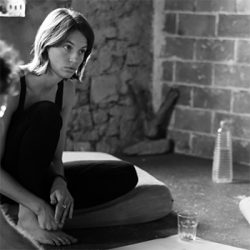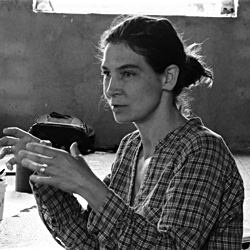Building power from the margins to achieve large scale social transformation.
How do we use organising strategically in our activism and movement building? How do we develop a practice that moves from short term action to building long term strategies, from fragmented isolated strategies to ecosystemic approaches and alliance building? This training will help you address questions like these, exploring applications to your context, in a collective, participatory and diverse learning environment.
What is Organising?
“Community organising” is a term on more and more people’s lips these days. But what is it? And how can it be a part of strategies for large-scale social transformation?
Within social movements a crucial distinction has been made between mobilising and organising. Mobilising is focusing on engaging large numbers of people in quick actions. It relies on centralised decision making and allows people to self-select their level of involvement. In contrast, organising is aiming to cultivate relationships, agency and strategic autonomy, bringing people together to strategise, reflect, and grow, prioritising long-term capacity-building. Most effective groups combine both approaches and we will be reflecting on and exploring both in this training.
There are many different ways of thinking about organising within the ‘social change’ paradigm. Some of the conceptions we will be exploring are:
Community Organising: Aims to build power within communities, focusing on addressing local issues and injustices. It emphasises leadership development, relationship-building, and collective action.
Transformative Organising: A more expansive approach to organising that seeks not only to address immediate issues but also to transform underlying systems of power and oppression, and economic, political, and social structures that perpetuate the status quo and injustice. Early thinking on this practice has been defined by US-based organisers in “Demand Everything: Lessons from the Transformative Organising Model”. Applications to the European context and the learnings and adaptations of this approach to organising are illustrated in “The power of Organising: Stories from Community Organising Campaigns Across Europe”.
Movement Building: A broader approach that goes beyond specific campaigns or issues to build a sustained, interconnected ecosystem of organisations and networks working toward social transformation. Key aspects of Movement Building focus on developing shared visions and narratives, building alliances and networks between organisations, and creating responsive and agile structures that can adapt to changing contexts.
This training will be both rooted in theory, as well as offering a hands-on and very practical approach to how the skills of organising can be applied in the field. You don’t need to have had formal training in organising to get a lot out of this course. And if you are already an experienced organiser, this training is designed to help push your thinking about your practice further.
We will explore ideas and practices related to:
Theories of Change: How change happens in the world. Understanding systems and complexity as well as power and influence in today’s increasingly volatile and uncertain world. Exploring how individuals and organisations contribute to change.
Approaches to Organising: Looking at different traditions and practises from Community and Transformative Organising to Movement Building
Diversities of Strategy & Tactics: Combining organising and mobilising approaches in movement building processes, inclusive and intersectional practices as well as creative and regenerative methods.
The Role of the Organiser: Reflections on identity, positionality and aspects of inhabiting the ‘role’, as well as sharpening practical skills and tools.
Alliance building: Effective Organising (of whatever kind) is most successful when performed in resilient alliances. This course will explore the pathways to building strategic, meaningful, empowering relationships.
The aims of the training are:
Through a blend of participatory education and immersive learning you will:
Who is it aimed at?
Anyone involved in socially engaged action addressing ecological, political and social justice issues. We embrace a broad definition of activism, including: Resistance – action preventing further damage to ecosystems and social justice; Renewal – action focused on developing and creating alternatives for healthier societies and communities; and Building Resilience – action supporting increased resilience in communities to weather the uncertain times ahead.
In the solidarity economy:
(See details of our approach to radical economics here)
Contact us
to apply

Location:
Ruth Cross is co-founder of Eroles Project – an international learning for action centre, and, Asociación La Bolina – a visionary intercultural initiative working to regenerate land and lives through creating social integration and sustainable livelihoods for locals, migrants and refugees in El Valle, Andalucia, Spain. She is the Artistic Director of Cross Collaborations, an award winning arts for change immersive theatre company.
Ruth is an experienced arts activist, social theatre maker, researcher and educator specialising in instigating transformative and regenerative change. She can be found directing immersive performance with migrants and refugees, creating participatory arts action campaigns and coordinating cross-disciplinary projects with organisations, decision-makers, civil society and local communities.
For the last 10 years Ruth has facilitated capacity building training with activists and social movements. She is a research contributor with Schumacher Research in Action community, is a member of the international Delicate Activism community and of Social Arts network ImaginAction. As well as a collaborator with Asociación Solidaria Andaluza de Desarrollo (ASAD).

Location:
María worked for the Red Cross in community development, strengthening civil society, education, and food security in Latin America and Africa. Building on her studies in social psychology and international development, she studied Alternative Economics at Schumacher College, UK. This led her into work on organisational change with NGOs and grassroots movements. María specialises in complexity and participation applied to organisations: organisational structures and culture, emergent strategy, leadership amongst others. She co-founded The Eroles Project, a learning for action project and La Bolina, a systemic project looking at repopulation, inclusion and agroecology. María´s co-authored: Small is Important: Learnings from an integration and regeneration Project. Factores Clave para la Acción Reflexión Colaborativa, Enfoques y herramientas participativas en la cooperación al desarrollo, Activism and spirituality.

Location:
Jana is a facilitator, activist and organiser dedicated to creating transformative learning spaces and building capacity to collaboratively strategise for system change. With a background in education, she has a passion for critical and experiential pedagogy and research interest in how social movements learn and engage in counter-hegemonic knowledge production. Organising in different networks across the Netherlands, Spain, Belgium, the UK, and Germany, she is an adventurer of coalition building and practioner of transnational activism. Drawing from experience in the social and climate justice movement, she recently coordinated the programme for People’s Summit with the COP26Coalition and now works with European Alternatives and the School of Transnational Organizing. Keeping it up with the grassroots; Berlin based.

Location:
An Maeyens (she/her) is a facilitator and trainer with over two decades of experience in grassroots movements. She specialises in creative, inclusive agenda design and brings deep expertise on group culture, power dynamics, and transformative learning. Starting of in the anti-globalisation movement she has trained thousands in civil disobedience, supported international coalitions, and developed multilingual training programmes and toolkits. Her work spans movements, cultures, and countries, guided by a commitment to care, accessibility, and leaderful organising.

Location:
Ari’s activism began in 2002, at age 16, as a Bosnian refugee in Canada, where they founded and coordinated a group for LGBTIQ high school students and allies. They were a co-founder and leader at kolekTIRV in Croatia and Trans Network Balkan, involved in community organizing, advocacy, program management, team coordination, capacity building, education, media work, campaigns, events, fundraising, etc. In 2024, they joined the Supervisory Board of the Croatian Trade Union Collective of United Precarious Workers and Activists (SKUPA).
Beyond the Balkan region, Ari served as a Board member at Transgender Europe (TGEU), where they held roles as Secretary, Treasurer, and later Co-chair. They have also been a trainer with the Center for Artistic Activism and served on the Advisory Committee and since 2022 as a Community Care Facilitator at FRIDA — The Young Feminist Fund. Since 2024 they are the Operations Manager at Global Philanthropy Project.

Location:
Sergio (all pronouns) was born in Romania and migrated to Germany in the early 2010s. In the past, he was a social worker with homeless people and a social consultant for Eastern European migrants for various organisations. Trained as a filmmaker, he spent two years making a documentary about the ‘civic reawakening’ in Romania and the waves of protest it brought with it. In connection to this, Sergio is currently co-steering the development of an online open-source participative knowledge production platform on activism in Romania. Over the past nine years, Sergiu has offered his skills to various journalists, grassroots collectives and campaigns, mostly working within the labour rights, climate justice, international solidarity and anti-authoritarian movements in Germany and Romania. Nonetheless, his biggest focus since 2020 has been his work as an organiser with the anarcho-syndicalist Free Workers Union, where he focuses mostly on organising Romanian migrant workers on construction sites, in factories and in the agricultural field.

Location:
Linzy Na Nakorn is a movement director, politicised somatics practitioner, community organiser and facilitator. For the past decade she has been facilitating movement, body work and creating theatre, dance and participatory performance that advocates for and organises with communities in pursuit of housing, disability and racial justice. Her movement practice focuses on trauma-informed approaches to building resilience, capacity and joy via way of the body for personal, interpersonal and community sustainability. Linzy was a Co-Director of The Big Ride for Palestine in partnership with The Gaza Sunbirds, Native Woman Ride and Middle East Children’s Alliance; using cycling as a tool for mobilising active solidarity and in support of campaigning for the rights and self-determination of the Palestinian people. Linzy is part of a UK network of activists and artists advocating for Radical Care – supporting organisations, researchers and institutions to work towards system change in societal approaches to labour, leadership and access.

Location:
Jeroen (he/him pronouns) has been involved in grassroots social movements for more than two decades now, starting back when he was fifteen. Throughout the years the fights for “climate justice” and “migrant justice” have been consistently on top of the list of struggles that make his heart beat faster. A key transformative moment for Jeroen was reading Paulo Freire’s Pedagogy of the Oppressed. Freire’s revolutionary pedagogy gave him a language to support the creation of emancipatory learning environments, rooted in a desire for collective liberation. Jeroen has also been exploring in depth Boal’s Theatre of the Oppressed and Joanna Macy’s The Work That Reconnects among other methodologies to build his trainer’s toolkit. Inspired by the liberatory possibilities of these traditions, he started an organization with a friend, LABO vzw, based in Belgium, where he has worked as a trainer and campaigner between 2013 and 2023.

Location:
Ella brings more than 10 years’ external experience working with not for profit and community based organisations across diverse themes including: advocacy for migrant communities; local community engagement in national policy making; and structural relationships between poverty and disenfranchisement, and education and poverty. Immersed in critical theory in her early 20s she brings a holistic and questioning approach, and is passionate about systemic solutions that centre relationship and interconnection between ecology and society. A long standing member of the collective, Ella has been part of the core team since the inception of the Ulex Project. Her work bridges facilitation, developing project partnerships, governance, strategy, operations, and project and programme evaluation. She has developed and overseen more than 70 partnerships with a range of different actors across European social movements.
Ulex: Latin (argelaga Catalan, gorse English) noun:
1. A thorny-evergreen flowering shrub, with a high capacity for regeneration and resilience. Its seedpods open in contact with fire and it reshoots from charred stumps. A successionary plant that grows well under challenging conditions. It improves soil fertility through nitrogen fixing, preparing the way for renewed biodiversity.
2. A traditional choice for igniting fires. Burns hot and bright.
3. A networked project adding nutrition and fertility to European social movements through training and capacity building. It kindles the realisation of social justice, ecological intelligence, and cognitive vitality.